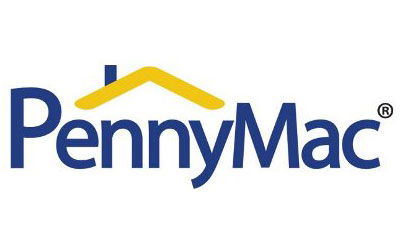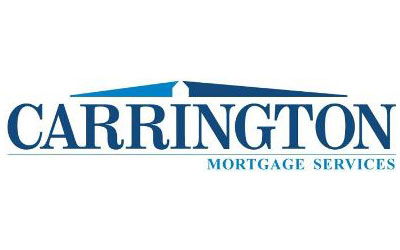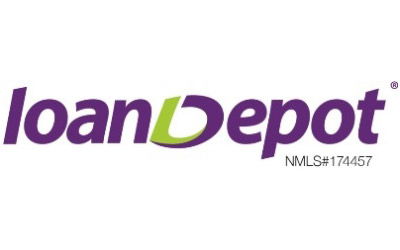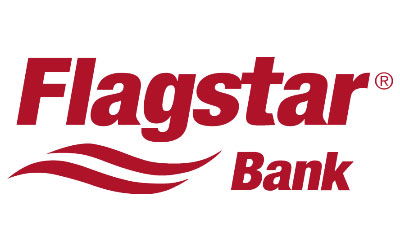Struggling to save 20% for a down payment? FHA loans let you buy a home with as little as 3.5% down—even if your credit isn’t perfect. These government-backed loans are designed to make homeownership more accessible, especially for first-time buyers and those with lower credit scores.
But not all FHA lenders are the same. Interest rates, fees, and approval requirements vary, so choosing the right lender can save you thousands over the life of your loan.
9 Best FHA Lenders
Below, we’ve rounded up the best FHA lenders of 2025 to help you compare your options and find the best fit for your financial situation.
New American Funding
New American Funding offers FHA loans with manual underwriting, which can help borrowers with nontraditional credit histories qualify. It also provides FHA 203(k) renovation loans, making it a strong choice for those financing fixer-uppers.
Rocket Mortgage
Rocket Mortgage is one of the largest FHA lenders in the country. It offers a fully digital mortgage process, making it a great option for borrowers who want to apply, track, and manage their loans online.
Guild Mortgage
Guild Mortgage offers FHA loans with flexible qualification guidelines and down payment assistance programs. It specializes in working with first-time homebuyers and those who need extra support to qualify.
PennyMac
PennyMac is a national mortgage lender that offers FHA loans with flexible credit requirements. It operates entirely online, making it a good choice for borrowers who prefer a digital mortgage process.
Carrington Mortgage Services
Carrington Mortgage Services specializes in FHA loans for borrowers with lower credit scores. It is one of the few lenders that accepts scores as low as 500, making it a strong option for those who may not qualify elsewhere.
Rate
Rate is a nationwide mortgage lender that offers FHA loans along with a wide range of other mortgage products. Its fully online mortgage process makes it easy for borrowers to apply and track their loan status from start to finish.
loanDepot
loanDepot offers a range of FHA loan options with flexible terms and down payment assistance programs. It is known for its easy online application process, making it a good choice for borrowers who prefer a digital-first approach.
Fairway
Fairway Independent Mortgage offers FHA loans designed to help first-time homebuyers and those with moderate incomes. It focuses on providing personalized service to borrowers throughout the loan process.
Flagstar Bank
Flagstar Bank offers FHA loans with flexible qualification guidelines. It specializes in low down payment options and helps borrowers who may not meet the strictest criteria at other lenders.
How do FHA loans work?
FHA loans are home loans backed by the Federal Housing Administration. These loans are designed to help people who may not be able to get a conventional mortgage due to lower credit scores or limited savings for a down payment.
Here’s what makes FHA loans a good option:
- Lower Down Payment: You can get an FHA loan with as little as 3.5% down, which is far less than the typical 20% down payment required for conventional loans.
- More Lenient Credit Requirements: FHA loans are more forgiving on credit score. You can qualify with a credit score as low as 500, though a score of 580 is typically required for the 3.5% down option.
- Backed by the Federal Housing Administration: The FHA guarantees these loans, making lenders more willing to offer them to borrowers who might otherwise be considered a higher risk.
FHA Loan Requirements
FHA loans are easier to qualify for than conventional loans, but there are still certain requirements that borrowers need to meet.
- Credit Score: To get a 3.5% down payment, you’ll need a minimum credit score of 580. If your credit score falls between 500-579, you may still qualify, but you’ll need to put down 10%.
- Down Payment: With a credit score of 580 or higher, you’ll need just 3.5% of the home’s purchase price as a down payment. If your score is lower, you’ll need 10% down.
- Debt-to-Income (DTI) Ratio: This ratio measures your monthly debt payments compared to your income. For FHA loans, your DTI should generally be no higher than 43%. Some exceptions may apply depending on the lender.
- Property Requirements: The home you’re buying must meet the FHA’s minimum property standards. An FHA-approved appraiser will evaluate the property to ensure it is safe and habitable.
How to Choose the Best FHA Lender for Your Needs
Choosing the right FHA lender can make a huge difference in your overall loan experience. The right lender will offer you competitive rates, a smooth application process, and the flexibility you need based on your financial situation. Here’s how to find the best one for you:
- Compare Interest Rates: Interest rates can vary from lender to lender, so it’s important to shop around. Even small differences in rates can add up over the life of the loan.
- Look for Flexible Terms: Some lenders are more flexible with credit scores or down payment requirements. If you have less-than-perfect credit or limited savings, look for lenders that specialize in working with borrowers in your situation.
- Consider Customer Service: FHA loans require a lot of paperwork, and you’ll want a lender that provides clear guidance and great support throughout the process. Check customer reviews and ratings to see how a lender handles communication and assistance.
- Check Loan Fees: Make sure to ask about all potential fees, including origination fees, closing costs, and mortgage insurance. Some lenders may charge higher fees, so it’s important to compare costs across different lenders.
- Think About Your Long-Term Needs: If you plan on refinancing later or may want to switch to a different loan type, consider whether the lender offers those options. Some lenders offer streamlined refinancing for FHA loans, which can save you money if you decide to refinance in the future.
By comparing your options carefully, you can find the lender that fits your needs and helps you secure the best possible loan terms.
Step-By-Step Guide to Applying for an FHA Loan
Applying for an FHA loan doesn’t have to be complicated. Follow these simple steps to make the process smooth and straightforward:
- Close the Loan: Once the loan is approved, you’ll go through closing, where you’ll sign the paperwork and pay any closing costs. Afterward, you’ll officially own your new home.
- Check Your Credit Score: Before you start, know where you stand. Check your credit score to get an idea of what loan terms you can expect. If your score is low, consider taking time to improve it before applying.
- Get Pre-Approved: Apply for pre-approval with a lender to see how much you can borrow. This step helps you understand your budget and shows sellers you’re a serious buyer.
- Choose an FHA-Approved Lender: Based on your needs (credit score, down payment amount, loan type), choose one of the reviewed lenders that best fits your situation. Compare rates and terms to make an informed choice.
- Find a Home: Once pre-approved, start house hunting within your pre-approval budget. Stick to homes that fit within the amount you can borrow to avoid stretching your finances too thin.
- Apply for the Loan: After you’ve found your home and made an offer, submit your full application to the lender. Be ready to provide documents like income verification, employment history, and bank statements.
Final Thoughts
FHA loans are an excellent option for first-time homebuyers and borrowers with less-than-perfect credit. They offer lower down payments and more flexible credit requirements, making homeownership more accessible.
Before you make a decision, be sure to compare your options, review loan terms carefully, and choose a lender that best fits your financial situation. Taking the time to find the right loan can save you money and make the homebuying process smoother.













